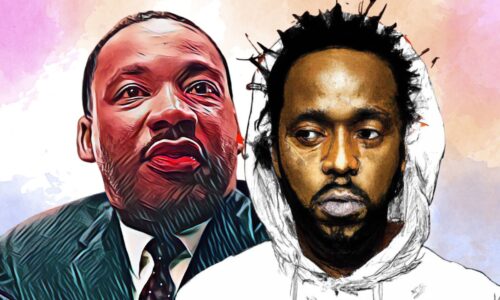 |
[J]ay Z’s “99 Problems” was an influential hit back in 2004. Many of us found ourselves bouncing to Rick Rubin’s production and rapping the lyrics.
Over a decade later, Jay Z’s song is more relevant than ever due to the police-related shooting deaths of Walter Scott, Michael Brown, Akai Gurley, Trayvon Martin and numerous others.
Once again, the issue of police brutality, at the front and center of American politics in 2015.
Jay Z’s version of “99 Problems” was based in part, on a real incident in 1994, which the rapper detailed in his book “Decoded.” When Jay Z was pulled over, he was also presented with the option of fleeing from the police.
The rapper decided to stay put.
“This dialogue is about the tension between a cop who knows that legally he’s dead wrong for stopping someone with no probable cause other than race, and a narrator who knows that legally he’s dead wrong for moving the crack,” Jay Z wrote in “Decoded.” “The conversation is casual and consequential all at once and shows how slippery language is, depending which side of the conversation you’re on.”
Sadly for Walter Scott, 50, of Charleston, South Carolina, he did the opposite and decided to flee from North Charleston police officer, Michael T. Slager.
| This is a conversation between Officer Michael Slager and another cop, just after the shooting death of Walter Scott, 50, in North Charleston, South Carolina. The officers discuss the shooting and even share a few casual laughs. Officer Slager has since been fired and charged with murder. |
Officer Slager had stopped Scott, a veteran who served with the Coast Guard, for a brake light violation.
After a minor confrontation, Scott attempted to flee from his vehicle. Slager opened fire and shot Scott five times in the back, killing him almost instantly.
Now, Officer Slager is facing murder charges.
Let’s assume you’re not dealing drugs and poisoning your community like Jay Z was doing in “99 Problems.” Can the knowledge help you out of a jam when the police stop you?
The answer is yes. Jay Z’s song is filled with beneficial information if you are stopped by police and are unsure of what to do.
 |
| Professor Caleb Mason used Jay Z’s “99 Problems” to explain the law to his students. |
[C]aleb Mason is an Associate Professor of Law at Southwestern Law School. He also worked as Assistant United States Attorney for the Southern District of California, from 2007-2009.
A few years ago, Professor Mason analyzed the second verse of the song, to show his students what pop culture gets right and wrong about criminal justice.
The song’s lyrics were given to Professor Mason by a student who saw a lesson could be taught from it. The examination is used as a resource for law students and teachers.
In each line, Professor Mason gives reasons why Jay Z did the right thing in some circumstances. His interpretation was meant to expand his students’ minds to discern what is lawful and what is unlawful in a traffic stop.
Check out an explanation of Professor Mason’s notes as he breaks down the song line by line, as well as the actual document. It becomes evident that Jay’s verse is much deeper than one may have expected.
The year is 94
and my trunk is raw
in my rear-view mirror is the motherfucking law
I got two choices y’all,
pull over the car or bounce on the double
put the pedal to the floor
This verse is pretty much self-explanatory and indicates thatJay Z was transporting drugs in his trunk along the highway when out of nowhere, he gets pulled over. The rapper goes back and forth as to whether he should leave the scene with the drugs in his trunk or cooperate and hope that the officer doesn’t examine the car for drugs. Professor Mason says in his commentary that it is better to stay at the scene since it will most likely be a lesser sentence, as opposed to taking the opportunity to flee.
Now I ain’t trying to see no highway chase with jake
plus I got a few dollars I can fight the case
So I…pull over to the side of the road, and I heard
“Son do you know what I’m stopping you for?”
Jay Z made a smart choice here, considering that high-speed chases are always bad for the perp, according to Professor Mason. The rapper recognizes he has enough money for a prominent attorney and at this moment, he doubts that there are any canine units on scene.
At this point, Jay Z is in a good position with the officer because he made the earlier decision to cooperate by pulling over. He has preserved his Fourth Amendment claims. Also, Jay Z has the right to record the officer asking him questions since its a public road.
Recording is very critical because the government must be able to show that the stop was based on probable cause, and he’ll be able to put the cop on the stand.
Cause I’m young, and I’m black and my hat’s real low?
Do I look like a mind reader sir, I don’t know
Am I under arrest or should I guess some more
“Well, you was doing fifty-five in a fifty-four.”
According to Professor Mason, this was very common during the period Jay Z references. Mason noted that in 1994, when this song took place, the New Jersey State Police had an active “drug courier profiling” program. It included profiles of young black males, wearing ‘drug dealer attire’, riding around in expensive cars on the I95 corridor.
When Jay Z says that he doesn’t know, it was a smart answer because it gives the officer no other choice, but to explain why he’s making the stop. The fact that Jay was going one mile per hour over the speed limit is the reason he was stopped. Most of us believe it is okay to travel
Most of us believe it is okay to travel between 5-10 miles per hour over the speed limit. But you can get ticketed and fined for something a small as one mile per hour over.
License and registration and step out of the car
Are you carrying a weapon on you, I know a lot of you are
I ain’t stepping out of shit all my papers legit
“Do you mind if I look around the car a little bit?”
 |
| The decision to flee from Officer Michael Slager cost Walter Scott, 50, his life. Slager is charged with murder. |
Professor Mason revealed that Jay Z’s refusal to step out of his car was unlawful. The Supreme Court has stated that once a motor vehicle has been lawfully detained for a traffic violation, the police officers may order the driver to get out of the vehicle.
And that would not violate the Fourth Amendment’s proscription of unreasonable searches and seizures.
The officer asks if Jay is carrying a weapon, which usually would lead to a weapons patdown. Professor Mason revealed that “Terry vs. Ohio” is a law that allows for a patdown at any time, if police feel it is necessary.
The officer once again stereotypes Jay Z as being a typical young black thug that would carry a weapon on him. Jay Z has a choice to make at this very moment.
Cops are always going to ask for your consent and many people feel as though they have to let them search, but you don’t. But, Professor Mason made an excellent point and said that if the police have the authority to search, they’ll just search.
If they ask for your consent, they don’t have the power to search unless you agree.
Well, my glove compartment is locked, so is the trunk and the back
and I know my rights, so you gon need a warrant for that
“Aren’t you sharp as a tack
some type of lawyer or something
or somebody important or something?”
Nah I ain’t pass the bar but I know a little bit.
Enough that you won’t illegally search my shit.
Professor Mason was adamant in explaining this point. Little does Jay Z know, but a police officer does not need a warrant to search anything that’s locked in your car.
According to the Supreme Court, because a car is mobile, it is reasonable under the Fourth Amendment for the police to search the entire car. This includes glove compartments, trunks and containers – if they have reason to suspect criminal activity.
“Well we’ll see how smart you are when the K9 come”
I got 99 problems, but a bitch ain’t one, hit me
From the beginning, the officer was trying to get the canine unit to come out to sniff the car so that it would be probable cause to search. But, the canine unit was late, and police cannot prolong a traffic stop. The Fourth Amendment rule is very clear. The police cannot detain you after they’ve finished processing the ticket, or process the ticket for an unreasonable length of time, in order to get a K-9 team there.
The waiting and eventual dog sniff could be considered an illegal detention and any evidence found could be suppressed.
Breaking down theses lines were very helpful in understanding the rights and the different laws when being pulled over by police.




